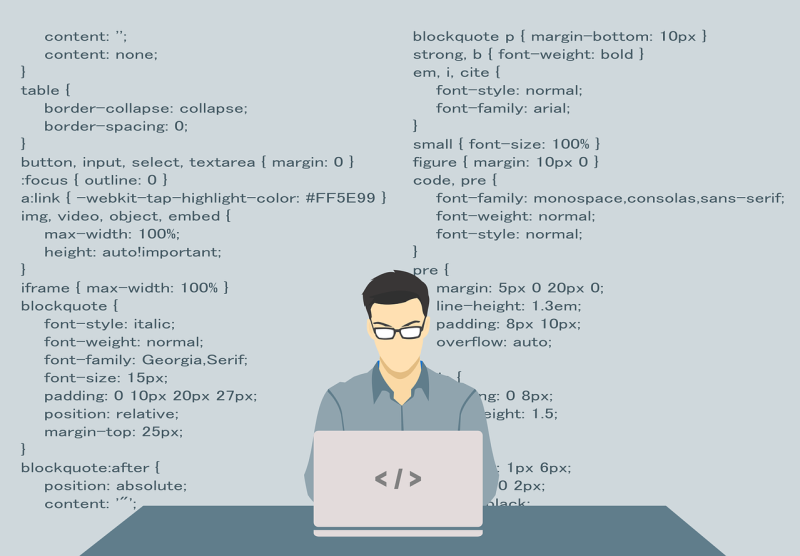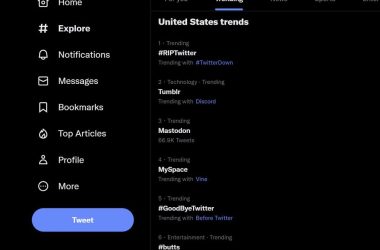When embarking on the coding journey, one must lay a solid foundation. This foundation is built on the bedrock of core programming languages. For many, Python is a great starting point, given its versatility and user-friendly syntax. Java, a web and app development staple, offers robustness and portability. Meanwhile, JavaScript, pivotal for web development, makes websites interactive and dynamic. While these are essential, you might want to explore niche languages depending on your specialization. C++ finds its strength in system/application software, while Swift powers Apple’s iOS apps. PHP, on the other hand, is vital for server-side scripting. The key is not to spread oneself too thin but to master a few, gaining depth and proficiency.
The Building Blocks: Solid Understanding of Data Structures and Algorithms
Delve deeper into the world of coding, and you’ll encounter the fundamental building blocks: data structures and algorithms. Imagine organizing a library without shelves (data structures) or a sorting system (algorithms). It would be chaos! Grasping these concepts is pivotal. Whether you’re arranging data in arrays, lists, or trees or implementing algorithms to search or sort this data, these tools dictate the efficiency of your software. Spend quality time honing these skills, practicing with real-world scenarios, and you’ll find that complex problems become much more manageable.
Embracing the Digital Classroom
Traditional education has its merits, but adaptability is key in the fast-paced world of coding. Coding online bootcamps have emerged as modern-day meccas of tech education. These intensive programs are tailored to offer hands-on, practical training over a short span. What might take years in conventional settings is often distilled into months at a bootcamp. But it’s not just about time efficiency. Bootcamps frequently update their curriculum to stay current, ensuring students are always at the industry’s cutting edge. Networking opportunities, peer collaboration, and even job placements are added perks. Enrolling in a reputable online bootcamp becomes a transformative experience for many aspirants, catapulting them from novices to job-ready developers.
The Safety Net: Version Control with Git
In our digital age, mistakes are inevitable. But what if you had a time machine? Git, a version control system, is akin to that. It meticulously tracks and records changes made to your code, allowing you to revert to a previous version if needed. Especially when collaborating with a team, conflicts in code can arise. Git helps manage these changes, ensuring everyone’s contributions are recognized and no work gets unintentionally overwritten. Invest time in understanding Git’s nuances. From basic commits to branching and merging, mastering Git ensures that you have a safety net, making coding a less daunting endeavor.
The Creative Engine: Problem-Solving Mindset
Beyond the lines of code lies the heart of a coder: problem-solving. It’s what gives life to those lines, transforming them from mere text into solutions. Aspiring coders should see challenges as puzzles waiting to be pieced together. This mindset, combined with technical knowledge, results in innovative solutions. Whether it’s building a new app feature or optimizing a server’s performance, the ability to dissect a problem, analyze its components, and devise a solution sets great coders apart. So, always stay curious, practice regularly, and remember that every challenge is an opportunity in disguise.
The Watchful Eye: Cultivating Attention to Detail
Even a single misplaced semicolon can unravel an entire program within the intricate tapestry of code. That’s where attention to detail comes into play. Being meticulous isn’t just a trait; it’s necessary in coding. Every line, every command, every function matters. Developing a habit of reviewing your code, testing repeatedly, and always being on the lookout for anomalies can save hours of debugging later. Moreover, this keen sense of observation aids in understanding user requirements, ensuring that the developed software truly aligns with user needs and expectations.
Interpersonal Dynamics: Soft Skills and Team Collaboration
Picture this: a coder, headphones on, lost in a world of screens and scripts. While this image has cinematic appeal, real-world coding is often collaborative. It’s not enough to be a coding maestro; one must also navigate the intricacies of teamwork. Effective communication is crucial. Translating tech jargon into plain English for clients or non-tech team members, actively listening to feedback, and confidently pitching ideas are all part and parcel of the job. Empathy, too, plays a vital role. Understanding user perspectives, respecting peer inputs, and fostering a positive team environment are soft skills that amplify technical prowess, making projects successful and enjoyable.
Crafting the User’s Journey: Understanding User Experience (UX) and User Interface (UI)
In the grand orchestra of software development, if coding is the rhythm, UX and UI are the melody. UX, or User Experience, delves deep into understanding the user’s journey. It’s about making software intuitive, ensuring users achieve their goals seamlessly. UI, or User Interface, complements this by focusing on the visual aspects: the buttons, sliders, icons, and all elements users interact with. For aspiring coders, a rudimentary understanding of these fields is invaluable. It ensures that the software isn’t just functional but also user-centric. Developers craft applications that resonate with users by aligning code with UX/UI principles, driving engagement and loyalty.
The Ever-evolving Landscape: Continuous Learning and Adaptability
Stagnation is the antithesis of technology. The digital domain is dynamic, with innovations emerging at lightning speed. For coders, this means that learning never truly ends. Today’s cutting-edge tech might be tomorrow’s obsolete tool. To stay relevant, an insatiable curiosity is essential. Subscribe to tech journals, join online forums, attend workshops, or simply experiment with new tools and languages. Adaptability, paired with a love for learning, ensures that coders remain relevant and pioneers, leading the charge in tech innovations.
Juggling the Digital Circus: Time Management and Organization
The life of a coder is akin to juggling. Multiple projects, looming deadlines, incessant updates, and the ever-present quest for perfection can be overwhelming. Effective time management becomes a coder’s best ally. Breaking tasks into manageable chunks, setting realistic deadlines, and prioritizing work ensures productivity. Organizational skills, too, play a pivotal role. Organization paves the way for efficiency, whether it’s neatly commenting on code, maintaining clear documentation, or simply keeping one’s digital workspace clutter-free.
Conclusion
In the realm of software coding, it’s not just about understanding syntax or mastering a programming language. It’s about weaving together a tapestry of technical acumen, creativity, adaptability, and collaboration. The skills mentioned in this article form a holistic foundation for any budding coder. However, a genuine passion for problem-solving and innovation is at the heart of it all. As the digital landscape continues to evolve, so too will the tools and languages we use. Yet, the principles of determination, continuous learning, and a user-centric mindset will remain steadfast. For those embarking on this exciting journey, remember that each line of code you write is a testament to your dedication and drive. Embrace the challenges, celebrate the milestones, and continually strive for excellence. The world of software development awaits, teeming with opportunities and waiting for your unique touch. Happy coding!










